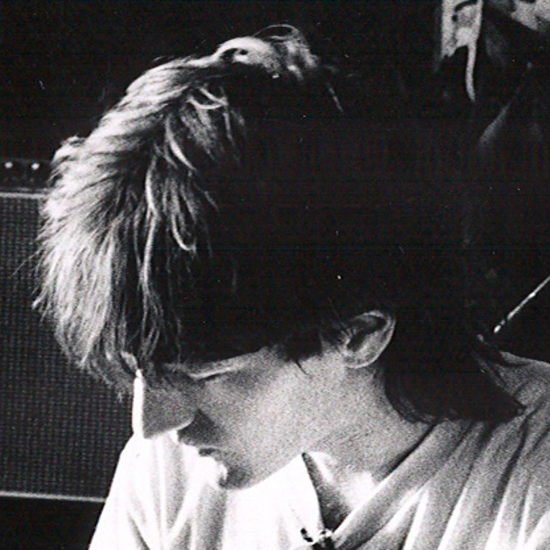In Rock and Roll, there exists many unique narratives —tales of talent, turmoil, and tragic consequences—that often define the legacies of musicians who left an indelible mark on the music industry. How often have we read about the passing of Jimi Hendrix, Hank Williams, Kurt Cobain, Janis Joplin, Cliff Burton, Duane Allman, and Prince? So many artists left this mortal coil far too young due to tragedy. Doug Hopkins, the enigmatic guitarist, and songwriter of Gin Blossoms, is one such figure whose life, music, and untimely death encapsulate the tragedy of the passing of the rock and roll spirit.
Born on April 11, 1961, in Seattle, Washington, Douglas Hopkins manifested an early affinity for the guitar. Raised in a household resonating with the melodies of The Beatles, The Rolling Stones, and The Kinks, he quickly developed an ear for catchy hooks and poignant lyrics that would later become the hallmark of his own songwriting. His innate musical talent, combined with a restless spirit, drove him to form Gin Blossoms in late 1987 in the fertile musical grounds of Tempe, Arizona. The band began with Bassist Bill Leen, singer and guitarist Jesse Valenzuela, Guitarist Richard Taylor, and percussionist and drummer Chris McCann. The early years were treacherous and tumultuous leading to many personnel changes, performance difficulties, and problems in recording. The band’s independent debut “Dusted” was released in 1989 which led to interest from A&M Records.
The Gin Blossoms threw themselves into recording and playing with a feverish intensity. The band’s lineup eventually solidified with Hopkins, Robin Wilson (vocals and guitar) replacing Taylor, Jesse Valenzuela (transitioning from lead to rhythm guitar), Bill Leen (bass), and Phillip Rhodes (drums). This group of players was especially interested in the thriving college rock scene of the time but focused less attention on being heavy and was more interested in powerful rhythm and melody. Hopkins, the primary songwriter, possessed a unique ability to distill complex emotions into catchy, radio-friendly tunes. The band’s jangly guitars, infectious melodies, harmonies, and introspective lyrics set them apart in an era dominated by grunge and hard-edged alternative rock.
Hopkins’ gift for crafting songs that were both musically and emotionally resonant became evident in the band’s breakthrough album, “New Miserable Experience” (released in 1992 after he was already out of the band). The record spawned hits from Hopkins’ pen such as “Hey Jealousy” and “Found Out About You,” which catapulted The Gin Blossoms into mainstream success. However, behind the veneer of their infectious sound lay the darker undercurrents of Hopkins’ personal struggles.
The lyrical content of many of Hopkins’ songs on “New Miserable Experience” hinted at the internal battles he faced. “Hey Jealousy,” with its catchy hooks and sing-along chorus, belied the pain and frustration of unrequited love. This dichotomy between upbeat melodies and melancholic lyrics became a trademark of the Gin Blossoms’ sound, reflecting the deep personal inner turmoil that haunted Hopkins.
Hopkins’ battles with addiction and depression intensified, painting a stark contrast to the upbeat melodies he crafted. As the band recorded New Miserable Experience the tensions around the recording effort weighed heavily on Hopkins and only accelerated his struggles with alcoholism and mental health. The pressures of delivering an album, coupled with the weight of personal demons, strained his relationships within the band. Despite his pivotal role in the creation of their signature sound, tensions reached a breaking point, leading to Hopkins’ departure from Gin Blossoms in 1992 as the band finished recording their breakthrough album.
The aftermath of Hopkins’ departure marked a turning point for both the guitarist and the band. The Gin Blossoms continued their journey without him, achieving further success with subsequent albums. Meanwhile, Hopkins grappled with the demons but his reach exceeded his grasp. Despite contributing briefly to other musical projects, notably The Chimeras, he struggled to find his footing in an industry that had once embraced him. His brief attempt to launch another project met with challenges, most of his own making, only further exacerbating his sense of isolation and despair. The tragic denouement of Doug Hopkins’ life unfolded on December 5, 1993, when he took his own life at the age of 32.
In the years that followed, the band faced a series of personal and professional setbacks in part due to the tensions that surrounded Hopkins. His death cast a somber shadow over the legacy of Gin Blossoms, forever linking his name to the melancholy melodies that defined the band’s sound. The circumstances surrounding his suicide raised poignant questions about the toll of artistic brilliance, mental health, and the sometimes-cruel whims of the music industry.
The impact of Doug Hopkins’ musical contributions endures, as his songs remain staples of ’90s alternative rock playlists as well as being used in television programs and movies. The Gin Blossoms, despite the internal conflicts that led to his departure, continue to honor his memory by performing his compositions. The bitter irony of his posthumous influence is a testament to the enduring power of his songwriting.
In the years following his death, retrospectives on Doug Hopkins’ life and career have attempted to unravel the complex layers of his persona. Interviews with bandmates, friends, and family shed light on the dichotomy of a man who could craft infectious pop gems while battling inner demons. The story that emerges is one of a troubled genius whose artistry became inseparable from his personal struggles.
The story of Doug Hopkins serves as a cautionary tale about the harsh realities that can accompany artistic brilliance. His life was a tumultuous symphony of highs and lows, and his music remains a poignant reminder of the fragile line that separates creativity from despair. As Gin Blossoms continues to perform, the ghost of Doug Hopkins lingers in the chords of “Hey Jealousy” and the haunting refrains of “Found Out About You,” immortalizing a songwriter whose melodies transcended the boundaries of time and tragedy.




